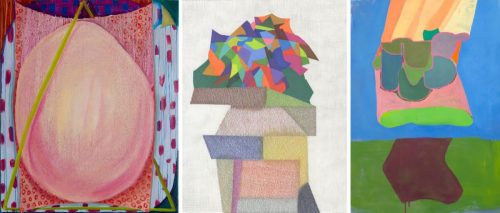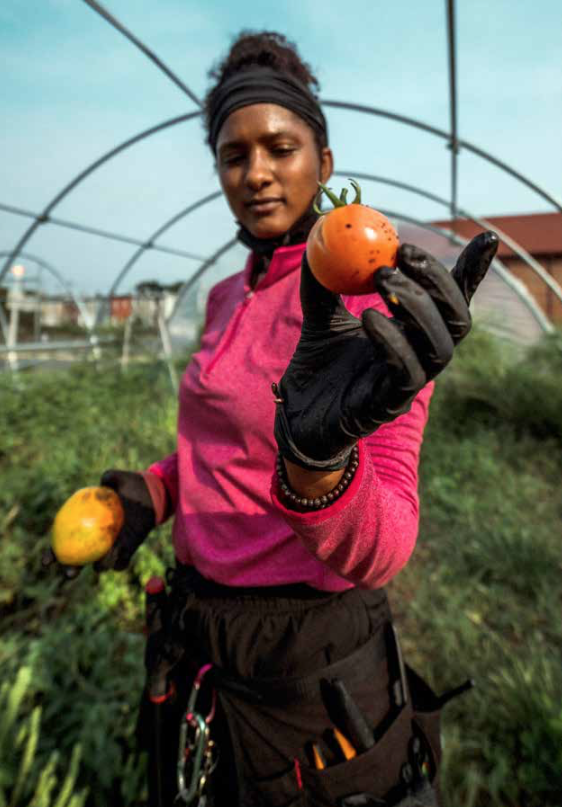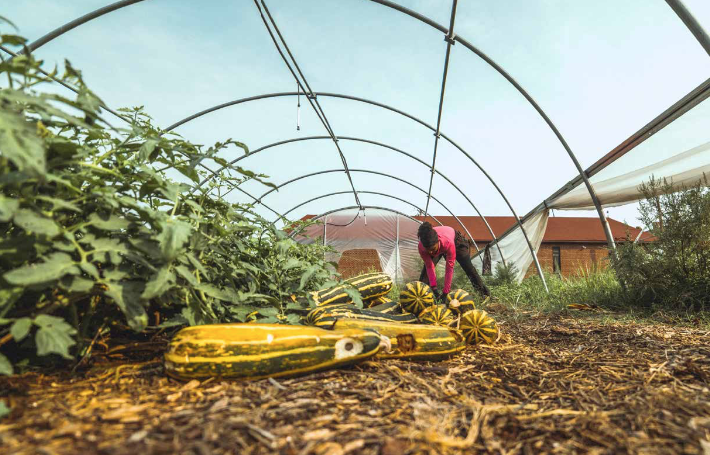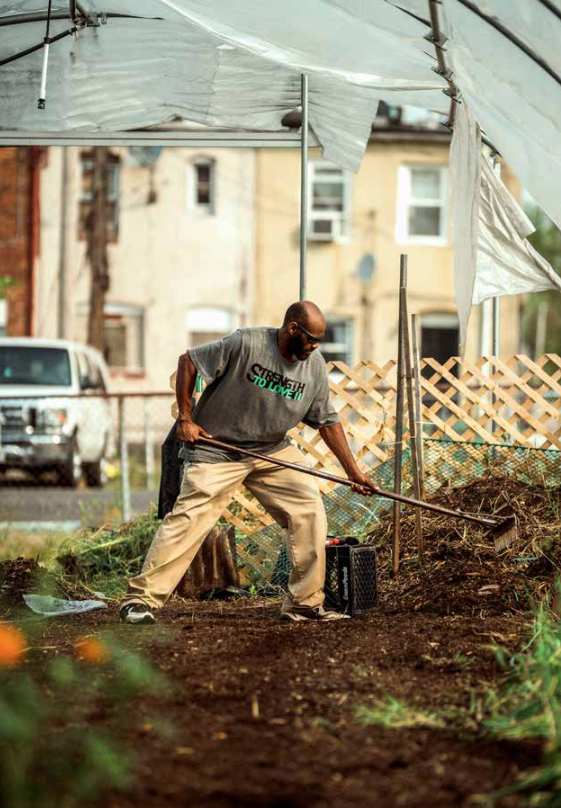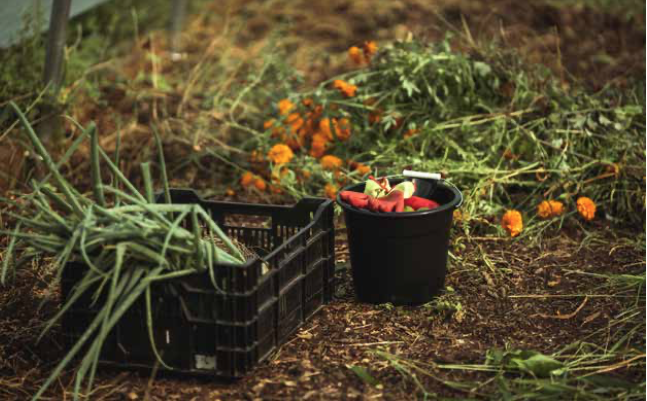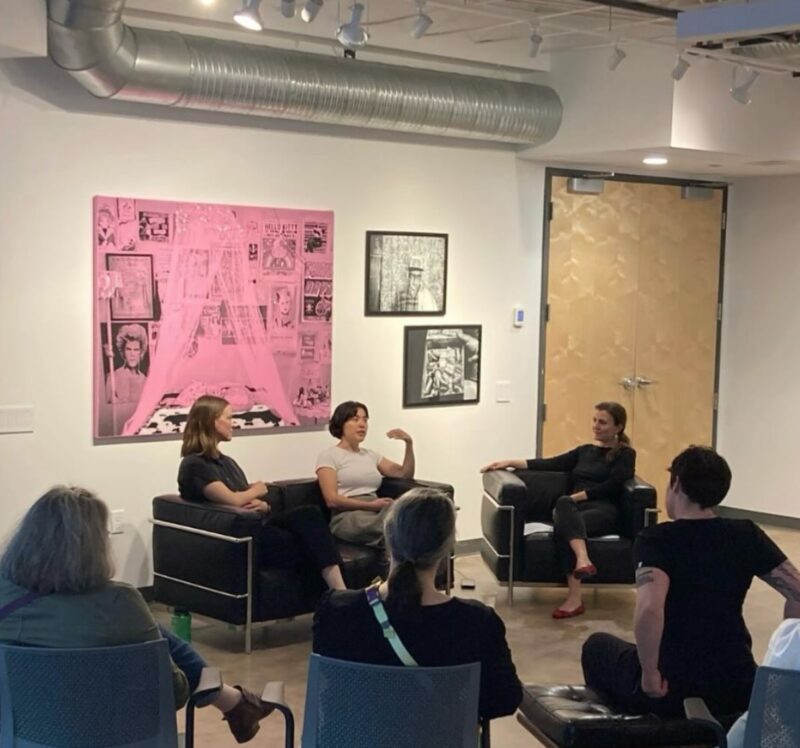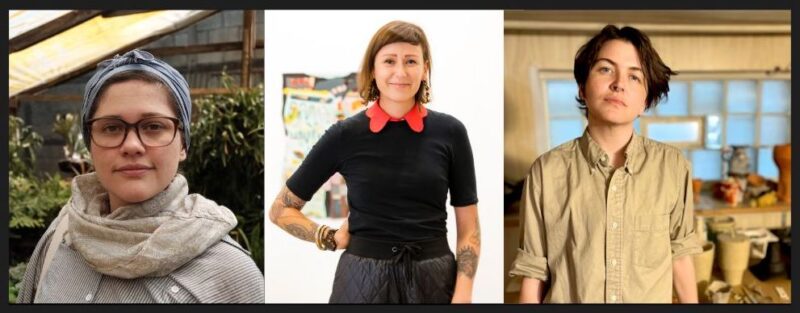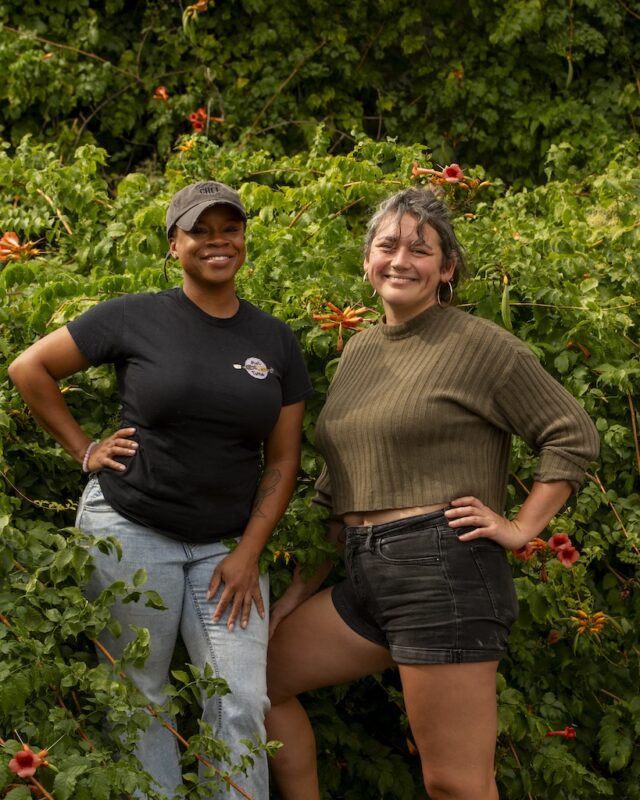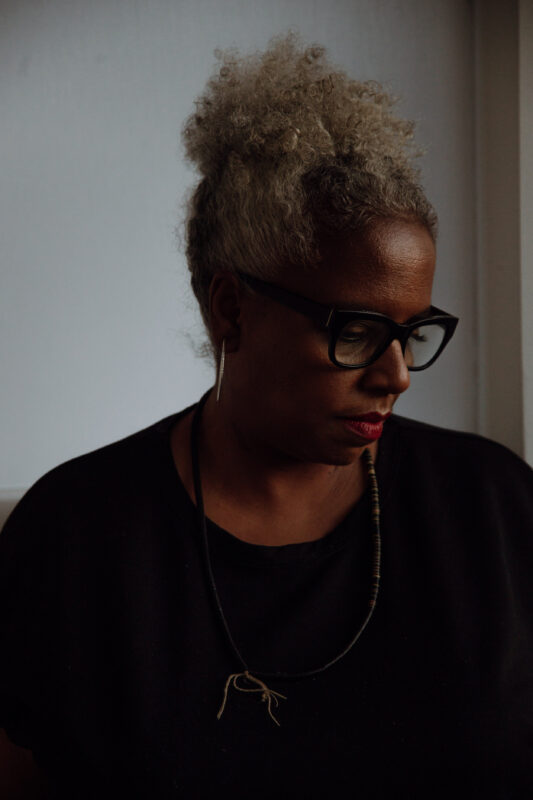“My elder used to say, ‘Son, you can’t wish for anything in a place,’” says Bryan “Ibrafall” Wright. He recalls this as we sit under a high tunnel greenhouse in Sandtown-Winchester, here in the middle of the city, surrounded by greenery, by sunflowers in full bloom, by fish peppers and purple hull peas, black-eyed peas, and trees.
The urban farming movement in Baltimore is far greater than a willed wish. It is the direct manifestation of hard work, of tough and calloused hands reaching into the soil, weeding the dry beds, and tending to the crevices of the earth. It is the direct emulsification between skin and dirt, in service of a higher mission to cultivate and groom a more tender and kinder world.
“I want to show Black folks that you don’t need your 40 acres to feed yourself,” Wright explains. “You don’t need all of this land to make money. I’m showing people that in this little space, you can grow and farm intensively and you can [yield] an overabundance of produce.”
Wright is the farm manager and program director of the Strength to Love II Farm (STL2), a community-based program in West Baltimore that offers workforce development and employment opportunities to citizens returning from incarceration. The one-and-a-half acre farm houses fourteen high tunnels that stand 25 by 120 feet long and yields produce yearlong through a community-supported agriculture model that reaches hundreds of families and restaurants throughout the city.
The five-person team employs a number of biodynamic farming practices that ensures that the land produces generously. “I grow very intensively by making sure that there’s always an overabundance of nutrients in the soil.” Wright explains. That is, if the soil is good, things will be alright. Dubbing himself a plant psychologist, Wright employs a number of tactics to remind the plants of their potentiality. He doesn’t honor spatial dimensions, which is to say a plant will grow where it can grow, and he oftentimes will skip watering altogether.
“I’d like to say plants are like people,” he explains: without stress, they won’t grow. “I’ll go a few days without water and what happens? The plants will want to find water. So what do they do now? They expand their root systems and as they expand their root systems they get more nutrients, nutrients that have just been sitting there that they haven’t tapped into.”
The farm rests on one simple notion: wherever the people are is where the food should be. It is an idea that has failed in many parts of Baltimore. A report published by Johns Hopkins University in collaboration with the Baltimore Food Policy Initiative revealed that about a quarter of city residents live in food deserts “with limited access to healthy foods.” In Baltimore City, 34 percent of African Americans and 30 percent of school-aged children live in areas without access to grocery stores and fresh produce.

